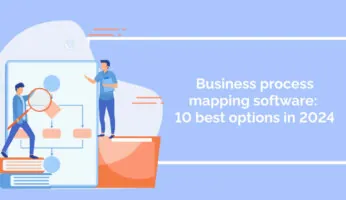
Human resources are a key function in every organization. The department handles important tasks such as recruiting candidates, managing the payroll, keeping employees engaged, and more. With many of these processes involving repetitive tasks, the demand for Robotic Process Automation (RPA) in HR is increasing across all industries.
Within HR, RPAs automate activities giving staff more time to focus on initiatives that will contribute to the company’s growth. Though the concept of automation is still fairly new to some, digital transformation is rampant throughout industries, and RPA is a powerful driving factor in the evolution of HR.
RPA for Human Resources
Robotic process automation involves the use of innovative technologies and digital platforms to complete tasks more quickly and efficiently. When implemented successfully, HR can invest more time in quality activities such as employee engagement, employee retention, boosting employee productivity, standardizing policies, and other activities that result in improvement of the department for employees and managers alike.
It is important to note that automation does not indicate replacing HR staff, or reducing the number of employees in the department, but instead repurposing the value of human capital where it is needed most.
Factors Driving Robotic Process Automation in HR
The job of human resources is packed with numerous manual tasks, by automating these processes, the efficiency of the HR department increases. RPA in HR is beneficial to all companies and here are three major reasons why:
Accelerated and More Efficient Operations
HR activities often involve dealing with a lot of paperwork—be it for recruitment, payrolls and benefits, handling and tracking employee details, or other activities. Manually searching for information or analyzing these documents is time-consuming and the margin for error increases as the company grows in numbers.
RPA provides accurate results with much minimal chance for error. It ensures all data is distributed seamlessly and employee records are maintained in real-time across all departments, wherever your company is located. RPA can work at all hours without issues of fatigue or burnout, meaning more work is done faster while costing the company less.
Improves the Employee Experience
Handling a large number of employees is a challenging task for any HR department as they need to carefully track details like attendance, profiles, and other factors manually. RPA technology assists HR by taking care of activities such as cross-checking employee attendances, punch-card times, and notifying HR in cases of inconsistency.
The use of modern automated systems creates a better employee working environment where HR staff are no longer expected to complete tedious, repetitive tasks. This technology is already resulting in increased employee satisfaction.
Easily Integrated and Scalable
RPA platforms can be integrated with other systems and business analysis automation used by HR. These different RPAs can assist HR with a variety of daily tasks without interrupting workflows.
HR can start using platforms backed by automated techniques to handle their repetitive tasks while focusing human capital on activities that require decision-making capabilities.
Thankfully, RPA technology is scalable and flexible, meaning companies interested in utilizing the technology can expand the use of RPA throughout their organization when required without enduring costly integrations.
What to Consider Before, During, and After Implementing RPA for HR Processes
Before:
- Understand the benefits that the use of RPA in HR can bring to the organization by defining which areas can be automated and how the processes work.
- Test RPA implementation with a small set of processes. Automating all HR activities at once may lead to failure or complications in the organization. It is recommended to start with a few tasks and continuously add more as time progresses.
- Plan the implementation process carefully and identify challenges ahead of time to guarantee smooth operations while automating the HR process.
During:
- Train the company staff on using RPA and what they are to expect. If necessary, create an FAQ that answers to common challenges in order to save time and minimize confusion.
- Ensure your RPA provider has a help or support team readily available. New software can be complicated, so it’s important to have an IT firm or technical support team on-call to respond to any issues that may arise throughout the implementation.
After:
- Measure the progress after RPA implementation. Define a clear goal at every stage of the process and identify strategies to fulfill these goals.
- After implementing your RPA, collect feedback from the people involved in its usage. Ask employees about their experience with the digital changes within the department and understand areas that need improvement.
The Future of RPA
The use of RPA within HR teams gives employees the time and freedom to explore new strategies and pathways for company growth. It allows robotic processes to handle redundant tasks while humans can work on other productive and innovative activities.
HR departments using RPA can more efficiently utilize their time, resulting in a boost in employee satisfaction. Tasks like handling employee records, onboarding new employees, offboarding, and distributing payments and benefits, can all be streamlined with RPA—all while tracking the necessary employee performance and expense information.
Companies that switch to RPA have reported a growth of over 200% in ROI within the first year of integration. But that’s not all, RPA also helps to cut down company costs. As automation software integrates most HR tasks into a single automation system, companies won’t have to invest massive sums of money on a plethora of apps.
Considering all the benefits, it won’t be long before RPA is a part of every company’s HR department. With the innovative RPA systems available today, HR professionals can not only work faster but automate repetitive tasks for better work satisfaction now and in the years to come.
WalkMe Team
WalkMe spearheaded the Digital Adoption Platform (DAP) for associations to use the maximum capacity of their advanced resources. Utilizing man-made consciousness, AI, and context-oriented direction, WalkMe adds a powerful UI layer to raise the computerized proficiency, everything being equal.



